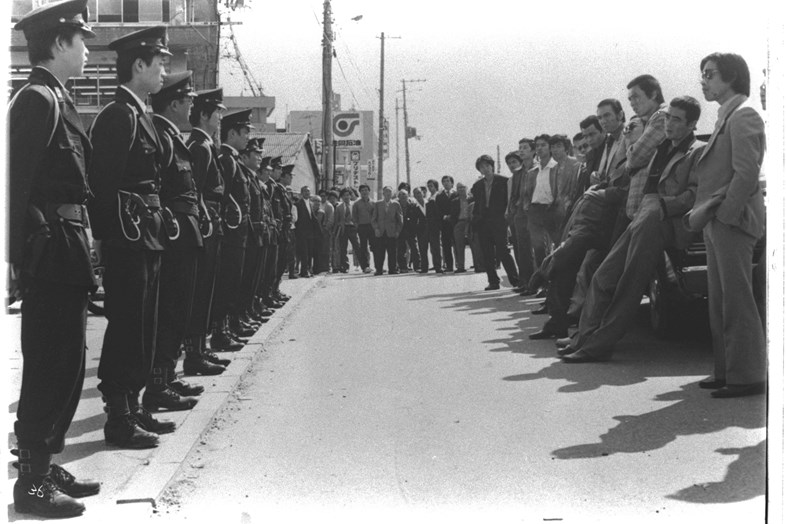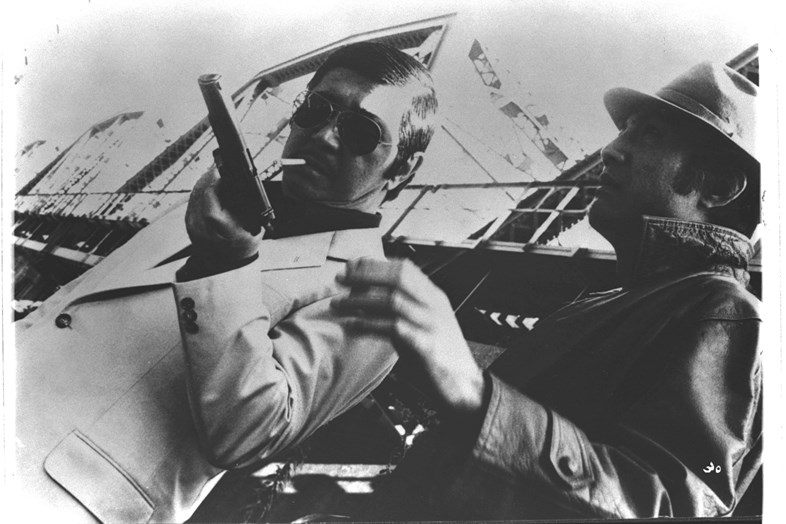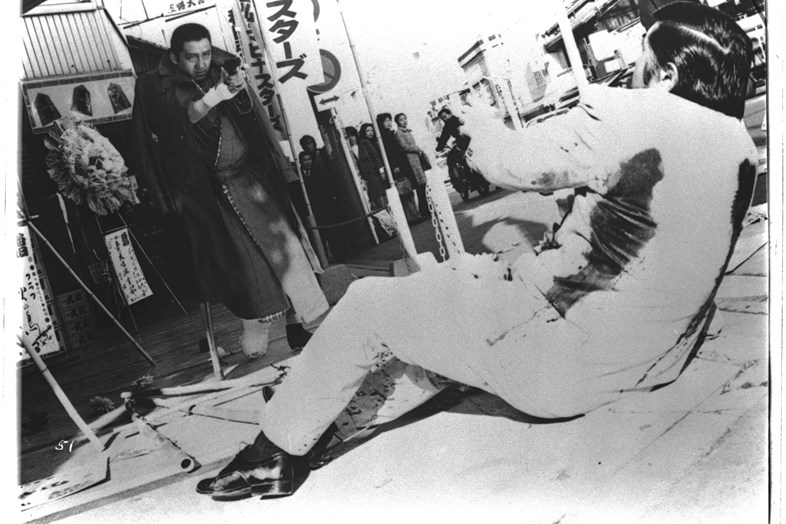To celebrate the blu-ray release of New Battles Without Honour and Humanity, we examine the Yakuza's code of conduct
Saints on paper but sinners in practice, the yakuza are Japan’s most notorious group of gangsters, famed for their charity as much as they are for their crimes. Their work is almost like a religion to them; the structure of their groups like families, with fathers and brothers of the group recognisable thanks to their heavily-tattooed skin and semi-severed pinky fingers. Legend has it that the group has been around since the rise of the Samurai in 17th century, and still boasts over 60,000 active members today. Their money-making schemes range from racketeering to gambling, while their code of ethics – as you’ll find out shortly – forbids robbery and drug dealing.
If anybody could decipher the inner workings of the yakuza, it’s the late director of Battle Royale, Kinji Fukasaku. Famed for his frenetic, frank and immersive approach to filmmaking, Fukasaku famously took first-hand accounts from an imprisoned yakuza member and brought the gang’s story to life. The result was New Battles Without Honour and Humanity (1974). Japan’s legendary answer to The Godfather, this five-film saga follows three different yakuza families living across Japan as they encounter betrayal and turmoil within their gangs. The movies have become undeniable cult classics within the action genre and it’s no surprise that Quentin Tarantino paid homage to them in Kill Bill.
So, if we were to follow the rules of the yakuza, what would that entail? As New Battles Without Honour and Humanity is released on Blu-ray for the first time, we break down the codes of Asia’s most infamous organised crime syndicate.

1. Treat your ‘oyabun’ with respect
In yakuza gangs, there’s a structure called “oyabun-kobun” that you’d be foolish to disobey. Oyabun refers to the “father” and kobun to his loyal “son”. Similar to the structure Chinese triads, this system requires the kobun does everything that their oyabun tells them to – disobedience may have dire consequences. In fact in many gangs, the only way for a yakuza son to gain redemption for such an act is for him to amputate part of his little finger as punishment. Often he’ll send his dismembered pinky to his oyabun as a sign of his penitence and loyalty.
2. Don’t steal from the everyday man
The romanticised vision of the yakuza paints them as Robin Hood-like figures, stealing from the rich and giving to the poor; committing white-collar crimes while helping everyday people when they’re in need. As a result, petty crimes aren’t a priority for the yakuza. Unlike gangs operating abroad, the yakuza are an officially recognised group in Japan, and being a member isn’t against the law. So, for the most part, they can operate without interference from the local police force, focussing their energies on more lucrative crimes that don’t affect innocent and unassuming members of the public.

3. Don’t disrupt the harmony of the gang or touch the partner of a fellow member
Being in the yakuza is like being part of a brotherhood. Once you don the hallmarks of a Japanese gangster – tattoos from head-to-toe and a half pinky – it’s a ride or die situation. In-fighting is strictly forbidden and you’re more likely to find one member sacrificing themselves to save the skin of a more senior member. But despite their so-called chivalrous ways, women seem to be regularly objectified by members of the group – it’s not permitted for one brother to even touch the wife or girlfriend of another.
4. Never involve yourself with drugs
Although the initiation into the yakuza involves the new son drinking sake with their oyabun, when it comes to drug dealing and drug use, the majority of yakuza gangs are staunchly against it. It might seem strange, considering it almost defines how cartels and mafias are run in the West, but most groups refuse to get involved in drug trafficking, and if you’re caught doing so it would most likely end in punishment. That said, there are groups that use it as a way to make money, in spite of the rules.

5. Always act chivalrously
Perhaps the most important rule for the yakuza to follow, whether it was back in the 16th century or here in 2017, is to always act respectfully. Gangs have a longstanding reputation for being respectful to those who don’t work against them, as well as giving back to those in need. After the Kobe and Tohoku earthquakes in 1995 and 2011 respectively, the yakuza reacted immediately to send food aid and helicopters to those in need, as well as opening the doors of their offices to those in need of refuge.
New Battles Without Honour and Humanity is now available on Blu-ray.











